The University of Chicago Press, Chicago 60637
The University of Chicago Press, Ltd., London
2003 by Lenn E. Goodman
New Preface 2009 by Lenn E. Goodman
All rights reserved. First published by gee tee bee in 2003
University of Chicago Press edition 2009
Printed in the United States of America
18 17 16 15 14 13 67
ISBN-13: 978-0-226-30310-9 (paper)
ISBN-10: 0-226-30310-1 (paper)
ISBN: 978-0-226-30776-3 (e-book)
Library of Congress Cataloging-in-Publication Data
Ibn Tufayl, Muhammad ibn Abd al-Malik, d. 1185.
[Risalat Hayy ibn Yaqzan. English]
Ibn Tufayls Hayy ibn Yaqzan : a philosophical tale / translated with an introduction and notes by Lenn Evan Goodman. Updated ed., with a new pref. and bibliography
p. cm.
First published by gee tee bee in 2003.
Includes bibliographical references and index.
ISBN-13: 978-0-226-30310-9 (alk. paper)
ISBN-10: 0-226-30310-1 (alk. paper)
1. Philosophy, IslamicEarly works to 1800. I. Goodman, Lenn Evan, 1944 II. Title. III. Title: Hayy ibn Yaqzan.
B753.153R5313 2009
181'.92dC22
2009019586
 The paper used in this publication meets the minimum requirements of the American National Standard for Information SciencesPermanence of Paper for Printed Library Materials, ANSI Z39.48-1992.
The paper used in this publication meets the minimum requirements of the American National Standard for Information SciencesPermanence of Paper for Printed Library Materials, ANSI Z39.48-1992.
Ibn Tufayls
Hayy Ibn Yaqzn
A PHILOSOPHICAL TALE
Translated with an Introduction and Notes
Updated Edition,
with a New Preface and Bibliography
By Lenn Evan Goodman
THE UNIVERSITY OF CHICAGO PRESS
Chicago and London
OTHER BOOKS BY LENN E. GOODMAN
Love Thy Neighbor as Thyself, Oxford University Press, 2008
Islamic Humanism, Oxford University Press, 2003
In Defense of Truth: A Pluralistic Approach, Humanity Press, 2001
Jewish and Islamic Philosophy: Crosspollinations in the Classic Age, Edinburgh University Press and Rutgers University Press, 1999
Judaism, Human Rights and Human Values, Oxford University Press, 1998
God of Abraham, Oxford University Press, 1996
Avicenna, Routledge, 1992 (updated edition, Cornell University Press, 2005)
On Justice: An Essay in Jewish Philosophy, Yale University Press, 1991
TRANSLATIONS WITH COMMENTARY
Saadiahs Book of Theodicy: A Translation and Commentary on the Book of Job, translated with commentary, Yale University Press, 1988
The Case of the Animals Before the King of the Jinn, Twayne, 1978 (New edition, coedited with Richard McGregor, Oxford University Press, 2009)
Rambam: The Philosophical Writings of Maimonides, Viking, 1976
EDITED VOLUMES
Maimonides and His Heritage, coedited with Idit Dobbs-Weinstein and James A. Grady, SUNY Press, 2009
Aristotles Politics Today, coedited with Robert Talisse, SUNY Press, 2007
Jewish Themes in Spinozas Philosophy, coedited with Heidi Ravven, SUNY Press, 2002
Neoplatonism and Jewish Thought, SUNY Press, 1992
To my parents,
Calvin Jerome Goodman
Florence Jeanne Goodman
Los Angeles, California
CONTENTS
Preface to the 2009 Edition
When Descartes first pronounced his cogito ergo sum, he was not disburdening himself of an insight sprung full-blown from the pregnant vacuum of methodical doubt. He was echoing a response to a challenge philosophers have long felt. Avicenna had transformed Platos almost axiomatic equation of thought with being into an impressive argument for the substantiality of the soul. Avicennas argument was grounded neither on the external evidence of the senses nor on a priori deduction but on an introspective test that anyone, he believed, could perform.
If in doubt about the soul, Avicenna reasoned, one has only to conceive himself fully formed but isolated perceptually from all external objects. Our ability to think of ourselves floating amid the spheres, even our fingertips separated, so they cannot touch each other or our bodies, proves, he argues, that the soul does not depend on the body as, say, the color of a shirt depends on the shirt. For the thought of our consciousness in such a state does not presume the existence of a body. If the idea of consciousness is independent of the idea of embodiment, Avicenna reasons, then the mind does not depend for its being on the body it renders conscious.
Naturally, Avicennas bold argument raises more questions than it answers. Does conceptual independence really entail ontological independence? And have we really avoided positing our embodiment when we imagine ourselves floating untethered in space? Many philosophers today think Immanuel Kant put paid to the entire tradition Avicenna spoke for, by arguing that all our thinking not only arises from images (as Aristotle had supposed) but also remains dependent on them, as rationalists from Plato to Descartes, including Avicenna, had denied. The consciousness we posit, isolated from all spatial experience, Kant argued, is still temporal; and temporality, he concluded, presumes not just a mental but a physical world. That last inference of Kants is something of a stretch. But even if this inference is allowed, the notion that all human thought, because it is grounded in the physical, must remain physical in content is open to question. Surely the mind can intend objects that our sense organs have never sniffed or touched or seen. Thats what we do when we think about geometry or numbers or human characteror God.
Ibn Tufayl, following in Avicennas wake, takes a different tack, abstracting not from the physical but from the social world. What would human thought be like in the absence not of a body but of culture and tradition? What would a curious, insightful, and dedicated human being think about God and the world, the self and its place in the cosmos, without the helpor interferenceof religion, or even language? Rather than describe an introspective experiment in sensory deprivation, Ibn Tufayl lays out a thought experiment based on the premise of social isolation.
Ibn Tufayl is hardly unaware of how strongly our consciousness is colored and shaped by our social surroundingsupbringing and education, peers and role models. It is because he is so aware of the impact of social forces that he seeks to abstract from them, in search of the inner core of human identity and the truths one would discover, given the freedom to explore and the capacity to penetrate natures workings and the meanings of the messages nature seems silently but insistently to signal. Like every philosopher, Ibn Tufayl is not perfectly at home in his surroundings. But his alienation is not so radical as to leave him breathless or speechless, unable to communicate in the language of his contemporaries. Indeed, he can reach us too, although in some ways we stand much further from him culturally and linguistically than they did.
Hayy Ibn Yaqzn is the story of a man growing up alone on an equatorial island, passing through the phases of individual and civilizational development, and ultimately reaching a spiritual plateau that seems to Ibn Tufayl far more stable than the delicate natural platform from which we all set out, and on which we try to keep our balance as long as we draw breath. Using storytellers language alongside the words of scientists, philosophers, and mystics, Ibn Tufayl probes and tests, reconciles and refines the familiar notions of his day, lifting his account to the limits of human expression. He would not be able to do this if alienation had carried him over the brink to madness. He is at home in his own skin and can joke self-effacingly with his peers, enjoying a position of security and privilege amid an intellectual elite. But he is not so settled as to be complacent or blind to the limitations of the society he inhabits.
Next page
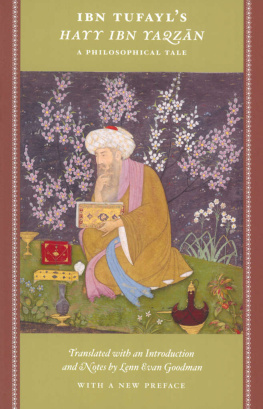

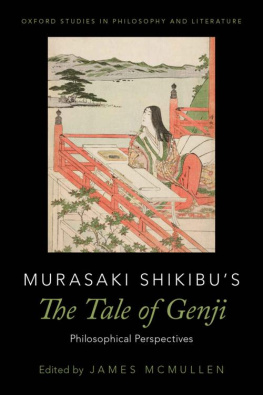
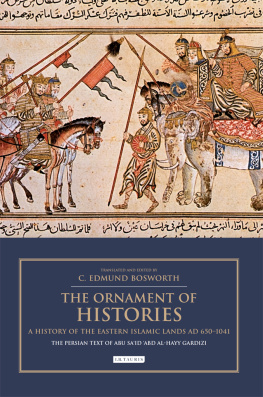
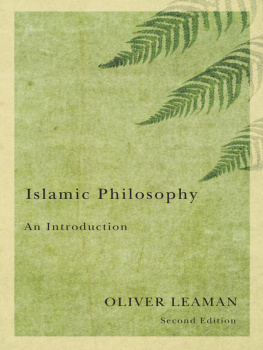
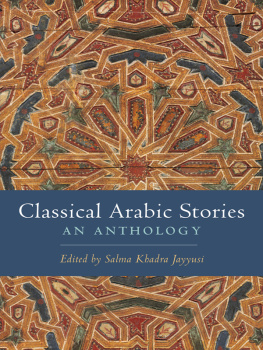
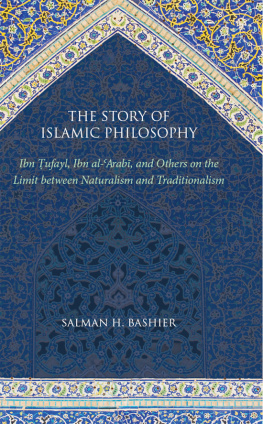
 The paper used in this publication meets the minimum requirements of the American National Standard for Information SciencesPermanence of Paper for Printed Library Materials, ANSI Z39.48-1992.
The paper used in this publication meets the minimum requirements of the American National Standard for Information SciencesPermanence of Paper for Printed Library Materials, ANSI Z39.48-1992.